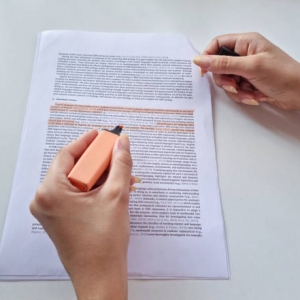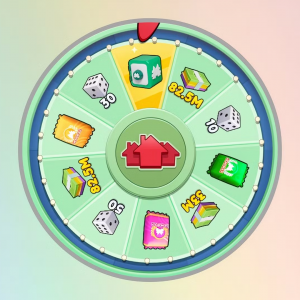Writing a dissertation is often described as one of the most challenging milestones in academic life. It is not just about research, analysis, and structure; it is also about managing the internal struggles that come with such a significant task. One of the most common and overwhelming challenges students face is self doubt. Questions like “Am I good enough?” or “What if my research isn’t original?” often haunt writers, leading to procrastination and unnecessary stress.
This blog will explore the roots of self doubt in dissertation writing, its impact on progress, and practical strategies to overcome it so you can approach your work with confidence and clarity.
Understanding Self Doubt in Dissertation Writing
Why Self Doubt Happens
Self doubt often arises when the pressure to perform meets the fear of failure. Writing a dissertation requires months or even years of commitment, and the weight of expectations can cause students to second guess themselves. Common triggers include:
-
Fear of criticism from supervisors or peers
-
Comparison with fellow researchers
-
Lack of confidence in academic writing skills
-
Feeling overwhelmed by the size and scope of the project
The Impact on Productivity
Unchecked self doubt can lead to procrastination, perfectionism, and writer’s block. Instead of making progress, students often spend hours revising the same paragraph or delaying writing altogether. Over time, this cycle increases stress and undermines both confidence and productivity.
Shifting Mindset: Building Confidence as a Researcher
Embrace Imperfection in Drafts
A key way to silence self doubt is to accept that the first draft does not need to be perfect. Drafting is about putting ideas on paper, not about delivering a polished final product. By reframing writing as a process, you reduce the pressure of perfectionism.
Recognize Your Expertise
You are the one who has spent countless hours researching your chosen topic. That makes you more knowledgeable about your subject than most others. Trust the effort you’ve invested your expertise has been earned through persistence.
Replace Negative Thoughts with Affirmations
When doubts creep in, practice replacing them with empowering thoughts. For example:
-
Instead of: “I’m not capable of this,” say: “I am learning and improving every day.”
-
Instead of: “This won’t be good enough,” say: “I can revise and strengthen my work.”
This mental shift can gradually help rewire the way you approach challenges.
Practical Strategies to Overcome Self Doubt
1. Break the Dissertation into Smaller Goals
A dissertation can feel intimidating because of its length and complexity. By dividing it into smaller, manageable tasks, such as completing one section of the literature review or editing a single chapter, you can create achievable milestones. Each completed step reinforces confidence and reduces feelings of overwhelm.
2. Create a Consistent Writing Routine
Consistency is more powerful than bursts of productivity. Setting aside specific hours daily or weekly helps you maintain momentum. Even writing 300–500 words a day adds up significantly over time, making the project less daunting.
3. Seek Constructive Feedback Early
Sharing your work with a trusted mentor, peer, or supervisor can provide valuable perspective. Instead of waiting until everything feels “perfect,” seek feedback along the way. Constructive criticism can highlight strengths you might have overlooked and guide improvements.
4. Practice Mindfulness and Stress Management
Stress often amplifies self doubt. Incorporating mindfulness practices such as meditation, journaling, or deep breathing can help you regain focus. A calm mind is more resilient against self critical thoughts.
5. Use Professional Support When Needed
Sometimes, additional guidance can make the process smoother. Academic support services, such as fashion dissertation writing, editing assistance, or online tutoring, can provide clarity and reduce anxiety about whether your work meets academic standards.
Building Resilience During the Dissertation Journey
Learn from Setbacks
Every researcher experiences setbacks, whether it’s an experiment that fails or a draft that requires heavy revision. Rather than interpreting setbacks as personal failures, view them as part of the process. Resilience comes from adapting and continuing despite challenges.
Celebrate Progress
Acknowledging small achievements finishing a chapter, submitting a draft, or even completing a productive writing session reinforces motivation. Celebrating milestones helps counterbalance the tendency to focus only on what is left undone.
Surround Yourself with a Support System
Isolation can intensify self doubt. Connecting with peers, joining writing groups, or talking openly about challenges can remind you that you’re not alone. Many students experience similar struggles, and mutual support can be a powerful motivator.
The Role of Self Compassion
Why Compassion Matters
Often, self doubt stems from being overly critical of oneself. Practicing self compassion allows you to treat yourself with kindness instead of judgment. It’s about recognizing that struggling with a dissertation is normal and that mistakes are part of growth.
Strategies for Practicing Self Compassion
-
Speak to yourself as you would to a supportive friend.
-
Avoid harsh self criticism when you encounter difficulties.
-
Remind yourself that progress, not perfection, is the true goal.
By cultivating compassion, you create a healthier emotional environment in which productivity can thrive.
Moving Beyond Self Doubt: Looking at the Bigger Picture
While the dissertation is a major academic undertaking, it is ultimately one stage in your larger journey. It is an opportunity to develop research, writing, and critical thinking skills that will serve you in both academic and professional settings. By overcoming self doubt, you not only complete your dissertation but also build resilience and confidence that extend beyond the classroom.
Conclusion
Self doubt is a natural part of dissertation writing, but it does not have to derail your progress. By breaking tasks into smaller steps, maintaining a steady routine, seeking support, and practicing self compassion, you can replace fear with confidence. Every page you write and every challenge you overcome is proof of your capability.
Your dissertation is not only a document of research but also a testament to your growth, persistence, and resilience. The journey may test your confidence, but by overcoming self doubt, you equip yourself with tools for success far beyond the academic world.










